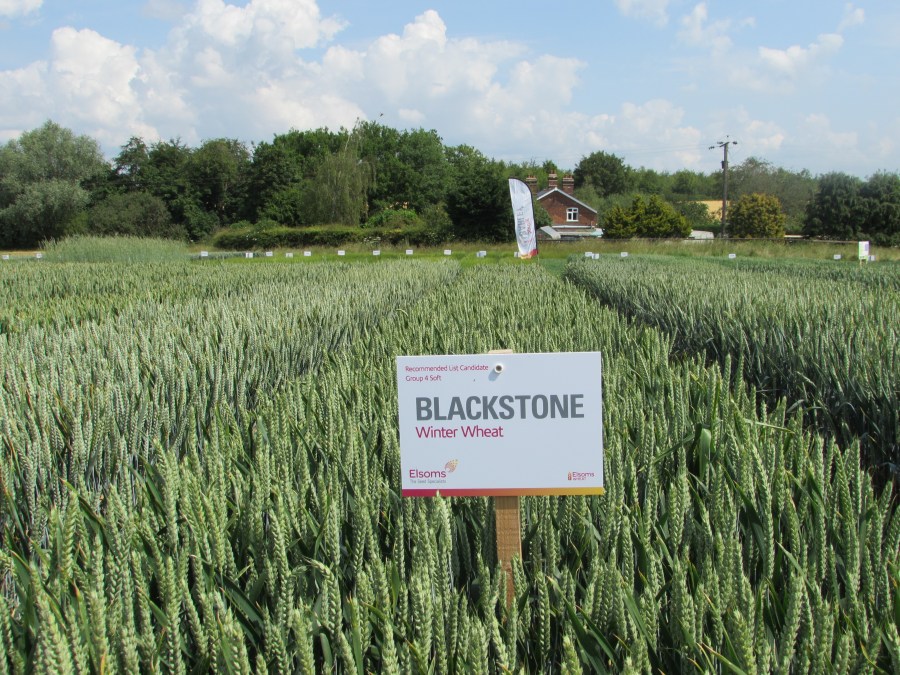A new Group 4 soft wheat candidate variety is showing promise, thanks to its wide sowing window and solid disease profile.
Blackstone (Elsoms Seeds) is currently the highest yielding of this year’s Recommended List Group 4 soft wheat candidates and was a first-time crop for JW Murray and Sons in Kirkcaldy.
Willie Murray, who farms the 155ha of combinable crops at Wester Balbeggie Farm, says Blackstone was recommended by Harley Seeds based on its very high treated yield of 105% in the North. “We drilled the crop on 26 September last year at a density of 205kg/ha into a medium loam topsoil with clay underneath following a crop of OSR,” he explains.
Early vigour
“The variety’s early vigour was exceptional and it easily outcompeted our combined weed burden of annual meadowgrass and broadleaf weeds, tillering well and coming through a relatively mild winter in excellent shape.”
Three main splits of nitrogen were applied on 27 February, 31 March and 3 April, with a small top-up dressing added on 24 April.
“On advice from our agronomist Duncan Downie from East of Scotland Farmers, we went with a 4-spray fungicide programme starting with a T0 ‘half-spray’ on 22 April and concluding with a final T3 spray by 22 June.
“Although Blackstone is very stiffed strawed, it was also a tall, lush crop grown in soil with plenty of fertility. So, for additional insurance, a PGR was applied at T0 and again at T2 alongside our main flag leaf spray of mefentrifluconazole+ fluxapyroxad+ pyraclostrobin,” says Willie.
Looking good
Through May to July, and leading up to harvest on 25 August, he says the crop looked exceptionally clean during a relatively low-pressure disease year in the area. It combined well producing with a clear bold grain.
“Average specific weight was very high at 81.5kg/hl, with a protein content of 10.3% that prompted an approach from a local flour mill to take the crop with the spec achieved as a soft biscuit wheat.
“Agronomically, the variety was easy to manage and it stayed very clean, showing no stress despite little rain between April and June. The second growth kick we saw after the first N application in the early spring was exceptionally good, and, although it’s not yet on the RL, I will definitely be drilling it again this autumn,” he says.
Robust package
Supporting Willie’s review is Douglas Gordon of Alexander Harley Seeds (Milnathort) Limited. “Having first heard about Blackstone last year, I was initially impressed with both its 105% treated yield score in Scottish trials and a robust disease package that includes a 9 for yellow rust, a 6 for brown rust and a 6 for Septoria Tritici.
“However, the appeal of a variety able to be sown from mid-September to potentially the following March could be its key trait. If the vernalisation tests that Elsoms is carrying out prove that Blackstone can be drilled well into March without compromising final yield too much, then the variety would be of serious interest to many Scottish growers,” concludes Douglas.




